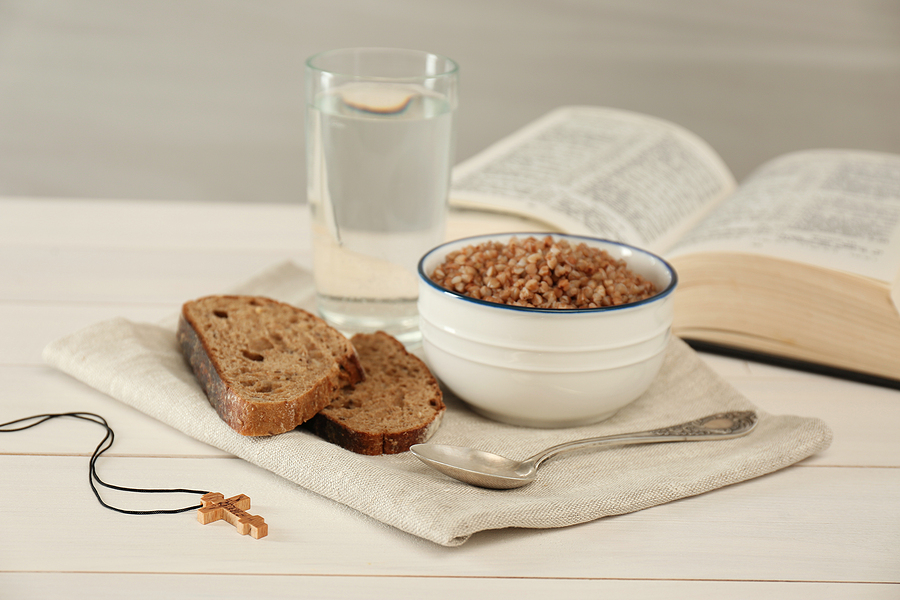
Love Fasting: Blessed detox.
Love fasting? You’re joking, right?
No, in fact, fasting is “in.” Increasingly popular is limiting meals to specific times. In intermittent fasting, eating is restricted to eight of six hour periods out of each twenty-four. Or, in alternate day fasting on one day, total calorie consumption is limited to 500 to 600 followed by normal eating routine on the next day. The terminology can be confusing but the underlying principle is simple: Stop mindlessly eating. Experience the feeling of hunger as something which passes. Because it does.
Many of us have learned from sad experience that having cookies, or chips, ice cream or cake around can function as magnets. Exciting the appetite to the point that the entire bag or carton is consumed, despite the fact that we were not hungry but bored, or tired or frustrated or… And then had to deal with the yucky aftermaths of our gluttony.
Sorry, but that’s what it is, right?
Thousands of dieters have experienced tremendous weight loss only to regain not just the lost weight but with added pounds leading to convictions that most diets fail. Despite TV ads to the contrary, it’s just not smart to be constantly eating. Unless you are a teenaged male, that is. Periods of resting our oft maligned and underappreciated gastrointestinal system-or GI immune system– is a no brainer.
The more we abstain from food, we find some super interesting results:
- We can learn to experience hunger.
- And distinguish it from appetite.
- Master it and along the way, ourselves.
- Enjoy the sense of emptiness and clarity of thinking that hunger can evoke.
Blessed detox
So here, Moses has outlined in his second speech, the way to Heaven: we must observe the divine commandments (chap. 5); we must love God with all our heart, with all our soul, with all our strength, without testing Him and acting insolently against Him (chap. 6); we must fight evil, without yielding in anything to the world and without harboring its abominations within us (chap. 7); we must never forget God in the comforts of life, thinking that our goal is Heaven, the true promised land, which we must reach through struggles against our passions (chap. 8); finally, we must profoundly humble ourselves in the memory of past sins, thinking that we are undeserving of any benefit (chap. 10). Following Moses’ example, who implored for mercy by fasting for forty days and forty nights, we too must repent for our sins, at least by scrupulously observing the fasts and abstinences imposed by the Church…Lent must be for us, the sacred time of our lives, must be for us, at least in the merciful form in which the Church imposes it, our forty-day supplication like that of Moses.
Blessed Detox
Father Dolindo Ruotolo–Creator of the Surrender Novena–speaks of fasting as detox. At least that’s how Elie G. Dib, translator of Servant of God Ruotolo phrases it. Quite accurately because Father Dolindo exhorts: We, who know how to submit to much more painful diet restrictions when they are imposed by our doctor for bodily health, we who can renounce meat, pasta, sugar, salt, wine, smoke when we are diabetic or when we are suffering from arthritis or nephritis, will we be ashamed not to perform such a mild fast?
And “Are we not the true diabetics of the soul, we who waste all God’s sweetness into our senses and diffuse the false sweetness of the world into our blood?…Are we not suffering from nephritis, we who cannot cleanse ourselves of evil, and we sediment it into our inflamed kidneys?”“
So the physical benefits plus the spiritual…
make it as at least plausible to love the blessed detox of fasting:— don’t they?
The fourth chapter of the Rule of Benedict, the “Tools of Good Works,” begins:
In the first place, to love the Lord God with the whole heart, the whole soul, the whole strength. Then, one’s neighbor as oneself. Then not to murder. Not to commit adultery. Not to steal. Not to covet. Not to bear false witness. To honor all (1 Peter 2:17). And not to do to another what one would not have done to oneself. To deny oneself in order to follow Christ. To chastise the body. Not to become attached to pleasures. To love fasting. To relieve the poor. To clothe the naked. To visit the sick. To bury the dead. To help in trouble. To console the sorrowing. To become a stranger to the world’s ways. To prefer nothing to the love of Christ.
The Tools of Good Works
My online friend and mentor, Brother Jerome Leo lives on through his daily reflections on the rule. For the many times I reach the end of the day and am shamed at how little I’ve done. Or the fact that I failed at my fasting plan, his words console and make me smile.
Holy Rule Reflection
If we truly preferred nothing to the love of Christ, we would be sinless saints. We would need no other rule! Small wonder that most of us read and look away in embarrassment. But ALL of us, every one, can chisel at that mountain day by day, resolutely. A day in which the seemingly tiniest and most token of obstacles to the love of Christ is conquered and removed is a day of great rejoicing in heaven!
As St. Teresa of Calcutta observed, “We can do no great things, only small things with great love.” We HAVE to start small, because, for most of us, if it weren’t for small, we’d never start at all! Ah, but those tiniest things done with love delight the heart of the Divine Merciful Christ more than we could ever imagine! Go for it!!!



